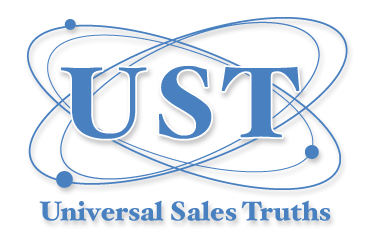The basis of any successful long-term business relationship is mutual respect. In my opinion, if a sales professional invests a significant amount of time in a sales campaign without first establishing the respect of the prospect, he or she is most likely wasting valuable time. Your features, benefits, cost justification and competitive advantage are all important ingredients of winning business. However, if mutual respect is not established, it is very difficult to gain commitment from the prospect. This is especially true in mission-critical or very large transactions.
Your prospects should view you, the sales executive, almost as a peer in terms of assisting them in reaching their goals and objectives. In other words, your prospect should not look down at you as simply a sales rep who can be used and abused and then tossed away like bag of rotten apples.
A good friend of mine recently related a story that highlights this principle. John was a very successful sales executive in the insurance industry. Typically insurance companies sell their products through brokers. Brokers then represent various insurance companies to end users like you and me. Early in John’s career, before he moved into management, he was calling on one of the large brokers in his sales territory. He had made numerous calls on this broker over of the course of a year with very limited success. For whatever reason, Walt, the owner of this brokerage company, was unwilling to work closely with John to develop a strategic partnership that would be mutually beneficial. He would call John for quotes. However, most of the quotes never resulted in business. It started to become obvious that Walt was simply using John to gain leverage over his primary insurance suppliers. Like any professional sales executive worth his salt, John worked hard to provide his insurance products to other brokers that were direct competitors of Walt.
One day John made a call on Walt that changed the entire dynamic of the relationship. Typically Walt would close his office door when he had meetings with salespeople. This day was different. Walt intentionally left his door open so the entire office could hear the conversation. Walt berated John for several minutes in a very loud and obnoxious tone. John did not engage in a screaming match. Instead he sat patiently in his chair without saying a word until he was sure Walt had completed his verbal attack. John then asked in a very smooth and calm tone if he was finished. When Walt confirmed that he was finished, John responded in a very calm and professional manner. His response was to the point, and direct.
As John began talking, Walt got up from his chair and shut the door! He must have anticipated a response that he did not want his employees to hear.
John pointed out that Walt did not sign his paycheck. In addition, John said the commissions he generated from Walt’s brokerage company were very insignificant. In fact, it was so little that if he never did any future business with him his income would not be affected. In other words, if John fired Walt as a small customer, his life and sales success would not change. In fact, John knew there was no legitimate reason for Walt to berate him in front of his employees. John did nothing to deserve that treatment other than to take business away from him. In some illogical way, Walt felt that if he admonished him, John might not aggressively sell to his competitors. In a very professional way, John explained to Walt that his job was to sell insurance products within his territory. And if Walt was not interested in working with him, then he would aggressively pursue other brokers who were more receptive.
The clear message was John did not need Walt’s small book of business. In fact, if he applied his selling time to more productive clients, he probably would be better off in the long run. There was no doubt John wanted to be one of Walt’s primary vendors. After all, Walt’s brokerage company was one of the larger ones in the territory. However, unless John gained the respect of Walt, things would never change.
The meeting, therefore, was a defining moment in the business relationship between Walt and John. Walt knew John would was not going away. He would continue to sell to other brokers who were his direct competitors. It made good business sense to work more closely with John to develop a mutually beneficial relationship. And that’s exactly what happened. Over the next several years, Walt became one of John’s largest clients! This, of course, would never have happened unless John first gained Walt’s respect.
The moral of the story is clear. Even though you may be verbally abused for no good reason, responding in a calm and professional manner is a better option than verbally attacking back. Business relationships are built over time. But it all begins with mutual respect.
UNIVERSAL SALES TRUTH # 2
Use your words carefully – think before responding!
Proverbs 12:16
Fools have short fuses and explode all too quickly;
the prudent quietly shrug off insults
Proverbs 14:29
Slowness to anger makes for deep understanding;
a quick-tempered person stockpiles stupidity
